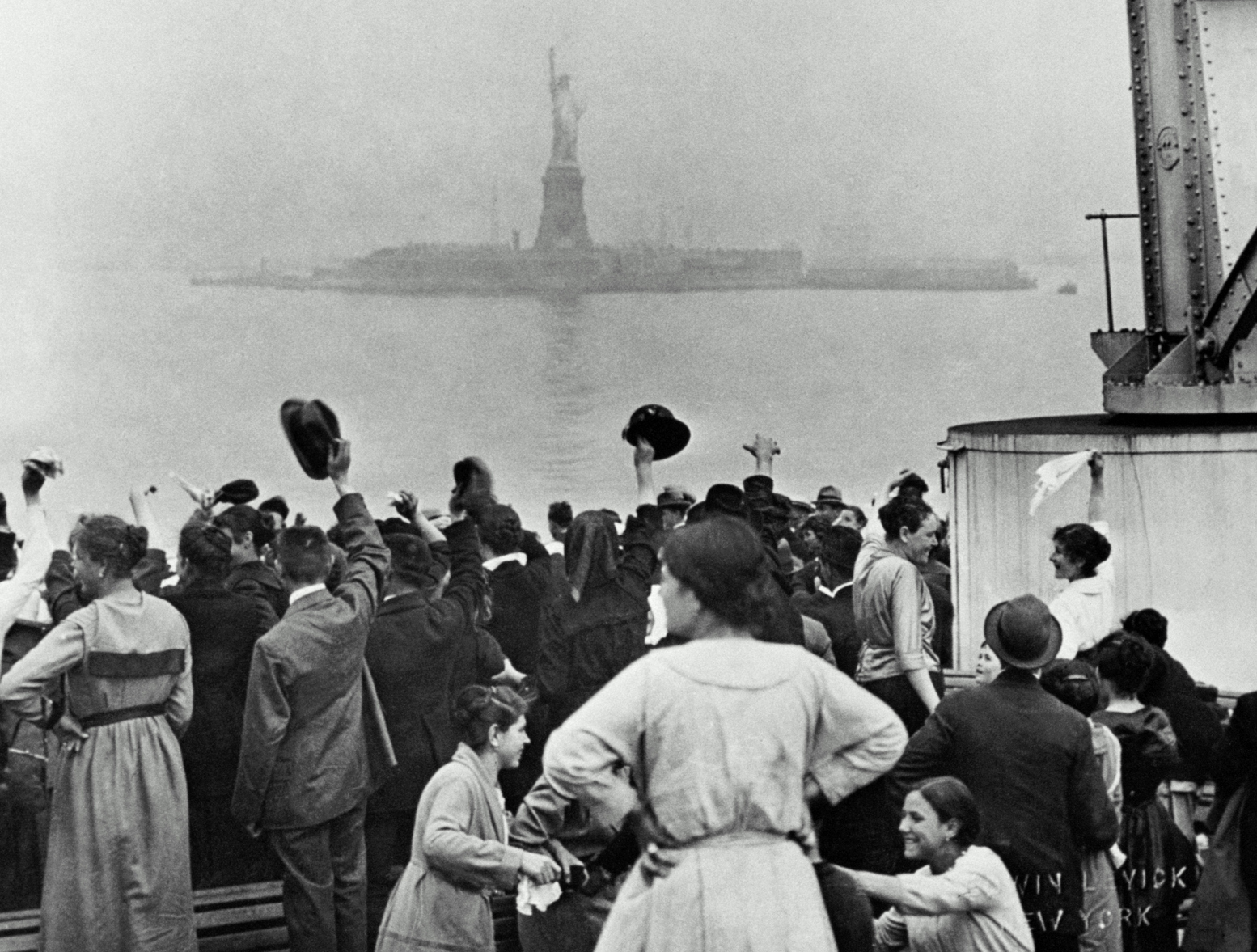Hamptons Soul: Refugees

Father Constantine Lazarakis of the Greek Orthodox Congregation, and Jewish Center of the Hamptons Rabbi Josh Franklin explore the plight of refugees and our duty to them as people.
Rabbi Josh Franklin
In the early 1930s, Julian Spiegel, along with his wife Kaethe and their young son Walter, set out on a voyage from Germany to the United States. Fleeing a Germany where antisemitism was on the rise, a place no longer safe for Jews, they found refuge in the United States. A few days after his arrival, Walter wrote to his grandparents who were still in Germany describing the scene of pulling into the New York Harbor of Ellis Island:
“Es war schön, dass Nebel war, denn die Freheitstatue und die Wolkenkratzer tauchten so schön aus dem Nebel auf. (It was lovely to see the fog around the Statue of Liberty and the skyscrapers emerging so beautifully out of the mist.)”
The United States became a refuge for the Spiegel family; later Julian was able to return to Germany and bring his parents to America. Walter served in the 84th Infantry in Europe and in Germany. In December of 1945, shortly after the Allies had won the war, Walter reflected on his journey and the home that he found in America:
“You have to have been through the ruins of Europe to appreciate America, and I realize more than ever the value of belonging there, at least I have a lot to look forward to — a wholesome security and a nice way of life.”
This is the story of an American dream discovered; it is the story of refugees who found home in America; and it’s my family’s history. Over the last several weeks, I have been reflecting on my grandfather’s letters in relation to the current refugee crisis emerging in Europe. Millions of refugees are fleeing a war-torn Ukraine. The United States has recently offered to take in 100,000 of these refugees, who I pray, will discover the same American dream that my family did. As Passover is on the horizon, we are reminded that long ago, we all were once refugees, and that when we see tyranny and oppression, it’s our moral responsibility to alleviate the contemporary suffering that we too endured long ago.
I’ve recently headed to Poland and the Polish/Ukrainian border with a delegation of rabbis to lend assistance to refugees from Ukraine. We’ll be partnering with on-the-ground refugee aid organizations to support individuals and families who have endured horrific traumas. This mission will also offer me the sacred yet scary task of witnessing the crisis up close, and allow me the opportunity to report back what I see, and the stories of Ukrainian refugees.
Father Constantine Lazarakis
This week, as Passover begins and we commence with Easter celebrations, we find it efficacious to reflect upon how these two major religious observances relate to one another, and how they also connect to our experience today. Properly understood, they are instructive not only as profoundly deep religious experiences that imbue our personal lives, hope and light, but they also guide our posture toward the suffering of our fellow human beings.
Passover, of course, is the commemoration of God’s deliverance of the Children of Israel from enslavement in Egypt. The Book of Exodus recalls how the blood of the Pascha Lamb spared the Israelites from death and how God guided them through the parted waters of the Red Sea, leading them to freedom and eventually the Promised Land. Easter, which was known as “Pascha” by the earliest Christians (a direct reference to the Passover), presents Christ as the eternal Paschal Lamb who frees humanity from enslavement to sin and death. By His crucifixion and resurrection, He guides through the “Red Sea” of death and brings us to the “Promised Land” of Eternal Life in paradise.
Understood properly, both Passover and Easter (among the most central commemorations of Judaism and Christianity) tell us the story of God liberating the oppressed, and bringing them to a place of refuge and freedom. As we celebrate Passover and Easter with refugee crises raging around the globe, particularly resulting from the attacks on the Ukrainian people, it is critically important that people of faith remember that God delivered the Israelites from slavery in Egypt. It is critically important that we remember that Christ’s resurrection is also deliverance from oppression on an eternal and cosmic level.
Clearly these observances call us to compassion, to solidarity. Clearly these observances call us to acts of philanthropy and efforts to bring relief to those hard pressed by war, oppression and exploitation.
Have a topic you’d like the Hamptons Soul perspective on? Email dtaylor@danspapers.com with the subject: “Hamptons Soul.”









